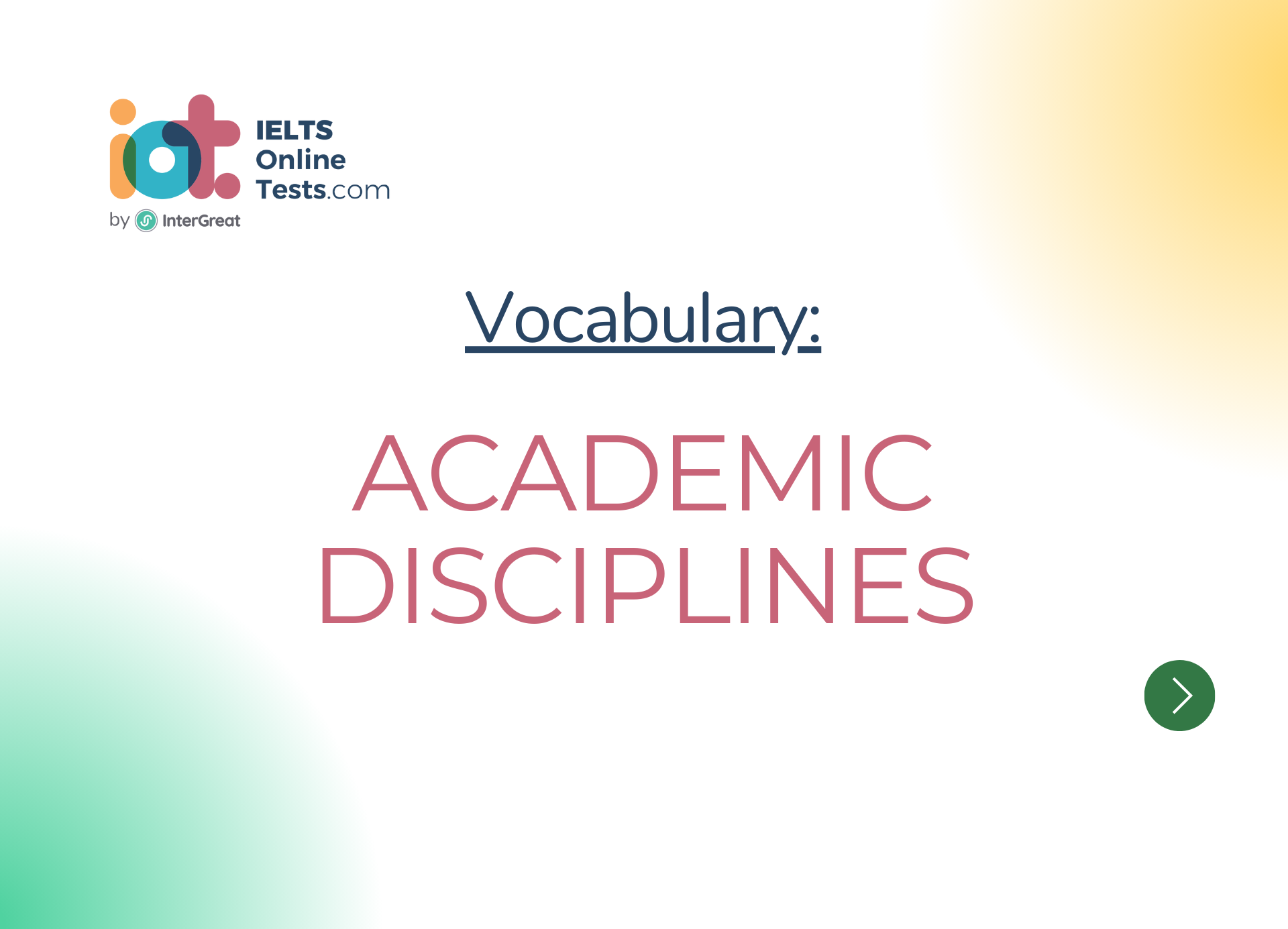
Academic disciplines
Here's a detailed list of vocabulary related to "Academic Disciplines" for the IELTS band score range of 4.5-6.0:
I. Sciences:
Biology - the study of living organisms and their interactions.
Chemistry - the science of the composition, structure, and properties of matter.
Physics - the study of matter, energy, and the fundamental forces of nature.
Mathematics - the study of numbers, quantity, and patterns.
Astronomy - the study of celestial objects and phenomena beyond Earth's atmosphere.
Geology - the study of the Earth's history and structure, including rocks and minerals.
Environmental Science - the study of the environment and its interactions with human activities.
II. Social Sciences:
- Psychology - the study of the mind and behavior.
Sociology - the study of human society and social behavior.
Anthropology - the study of human societies, cultures, and their development.
Economics - the study of production, distribution, and consumption of goods and services.
Political Science - the study of government systems, political behavior, and public policies.
Geography - the study of the Earth's landscapes, environments, and spatial relationships.
III. Humanities:
- History - the study of past events, societies, and civilizations.
Literature - the written works, including fiction, poetry, and drama.
Philosophy - the study of fundamental questions about existence, knowledge, and values.
Art History - the study of art forms, artists, and artistic movements throughout history.
Linguistics - the scientific study of language and its structure.
Archaeology - the study of human history through the excavation and analysis of artifacts.
Cultural Studies - the examination of cultural practices and their meanings in society.
IV. Applied Sciences:
- Engineering - the application of scientific principles to design and build structures, machines, and systems.
Architecture - the design and planning of buildings and structures.
Computer Science - the study of computers, algorithms, and information processing.
V. Education and Communication:
- Education - the process of teaching and learning in formal and informal settings.
Communications - the study of mass media and methods of conveying information.
VI. Health and Medicine:
Medicine - the study and practice of diagnosing and treating illnesses and injuries.
Public Health - the study of community health and disease prevention.
VII. Law and Legal Studies:
- Law - the system of rules and regulations that govern a society.
VIII. Other Disciplines:
- Economics - the study of how individuals and societies allocate resources and make choices to satisfy their needs and wants.
IX. Applied Sciences:
- Engineering - the application of scientific principles to design and build structures, machines, and systems.
Architecture - the design and planning of buildings and structures.
Computer Science - the study of computers, algorithms, and information processing.
X. Education and Communication:
- Education - the process of teaching and learning in formal and informal settings.
Communications - the study of mass media and methods of conveying information.
XI. Health and Medicine:
- Medicine - the study and practice of diagnosing and treating illnesses and injuries.
Public Health - the study of community health and disease prevention.
Remember to practice using these vocabulary words in context to enhance your understanding and fluency in English. Good luck with your IELTS preparation!




